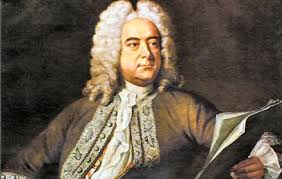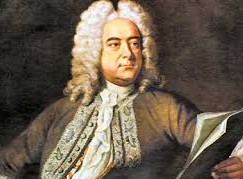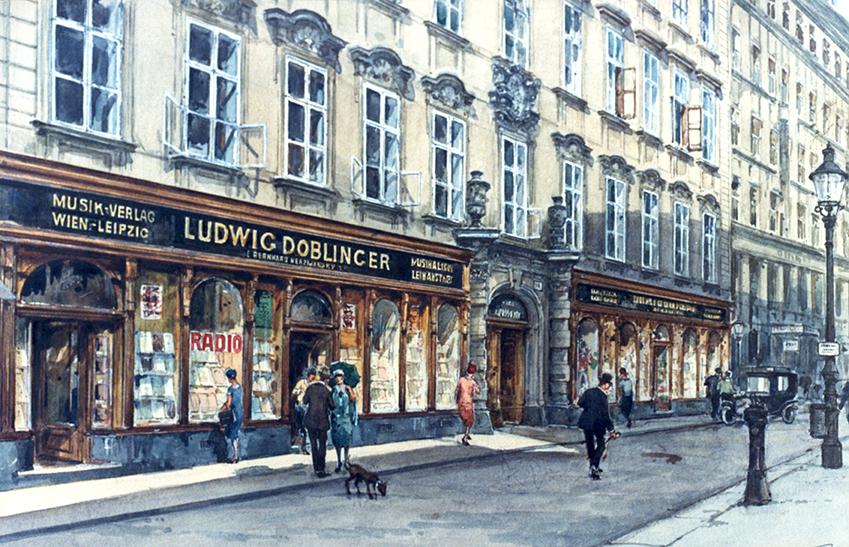Was Handel the Jeff Bezos of classical music?
mainFrom my lead review in this weekend’s Wall Street Journal of Jane Glover’s book, Handel in London, headlined ‘The First Musician-Entrepreneur:
Jane Glover’s new book titled Handel in London examines how a German musician of strong opinions and unpredictable temperament captured the rhythms of a world capital. There are many books about Handel that scrap with each other over such issues as his originality, his piety, his eating habits and his sexuality. The merit of this narrative is to ignore all of these voices off and focus on the mechanics and context of how Handel conceived and achieved music of deathless fascination. Dr Glover has conducted more than 100 Messiahs; she ought to know…
The difference between Handel’s life in Hanover and London is that in London he was no longer on the royal payroll but operated as an independent contractor, selling his services to theaters and eventually financing his own shows. There is a strong case to be made that Handel was the first musician-entrepreneur. Before each season, he would recruit the best singers in Italy and the most proficient local musicians, directing performances from the harpsichord and keeping an eye on the bottom line. Each night when the show was over, he would ride with his takings to the Bank of England, which kept a window open late to receive Mr. Handel’s revenues. Or so the story goes….

Read on here.






I am sure that, if he lived today, Händel would work as pop music producer.
No.
And Handel was “the greatest of all composers”, in Beethoven’s opinion … even greater than Bach, Haydn, and Mozart!
He said that when working on the Missa Solemnis, so he was a bit prejudged at that time.
A little late to the game here … but Beethoven’s admiration for Haydn must go back way before the Missa Solemnis:
Have you ever taken a close look at the fugue subject from the last movement of the Hammerklavier Sonata, Op. 106? There is something remarkable which appears when you leave out the trill and some (not all) of the following 16th notes (hint: it’s a motive that Mendelssohn also used in the last movement of his Octet).
Anyone else ever noticed this???
Oops … Handel, not Haydn!
Er…absolutely. He was much more highly regarded than Bach. The other two were near contemporaries, so understandable if Beethoven didn’t revere them.
He was the Andrew Lloyd Webber of the 18th century. A trifle more talented, however.
That is like saying that an advertisement poster is like a Velasquez, only the latter is a bit more talented. Or like saying that a rolls royce is like a bike, but faster. Or like saying London is like Scagglethorpe but only bigger.
A repellent association; there is nothing beautiful about Bezos or his Works.
That is a poor comparison. Yes, Handel was far more talented, and far more productive. Webber writes for a mass market audience whereas Handel wrote his operas for an elite audience. Even his later oratorios were not for the same kind of audience for which Webber writes. Plus Handel wrote in other forms (orchestral, concerto, sacred) whereas Webber has little beyond musicals to his credit. I have just started Dr. Glover’s book and can already recommend it. Very readable and lots of insight. A very different, more focused approach than the one the late Chris Hogwood took many years ago.
Händel wrote for what was in his time a “mass audience” (a large, paying public) as soon as he realized what that audience wanted. And he was surely pleased to find that he masses did not want very expensive opera singers, but choruses with whom they could almost sing along. As for the virtuoso component in his happenings, his organ concertos did the work.
Handel didn’t really write for an elite audience, at least not when he was in London. He wrote for a well-to-do middle class audience who mostly knew little about music. He had to sell tickets and fill the theatre.
Unlike Bach or Lully, he wasn’t subsidised.
I find the comparison preposterous. I’m a big fan of Amazon Prime but if not Bezos then “Joe Smith” would have developed online retail. Who would have composed a work comparable to the Messiah?
I wonder: was it Handel’s example which gave Mozart the idea, or at least the courage, to try a freelance career?
Except that Mozart was constantly trying to get a sinecure from the Royal family while he was in Vienna, without success. Mozart was not much of a success as “a freelance musician”.
Mozart also re-orchestrated music of Handel and Bach, on recommendation from von Swieten. Look them up……
4 Ralph& GL&AWL
No comment on Bezos but I surely want to read Jane Glover’s book ! 🙂
If Handel were writing today he would already have been sued multiple times for intellectual property violations. Especially since he copied from a law school graduate (Telemann).
Handel’s father wanted him to be a lawyer. Can you imagine him in court?!